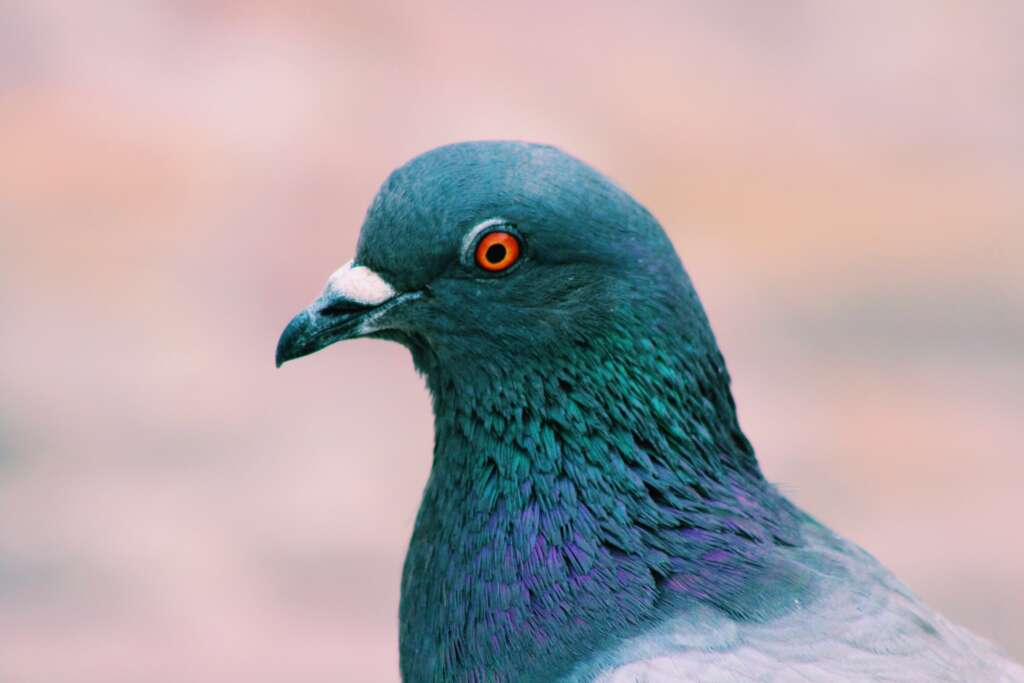
PIGEONS
Pigeons occur worldwide except in the coldest regions and the most remote islands. About 250 species are known.
Pigeons are gentle, plump, small-billed birds with a skin saddle (cere) between the bill and forehead. All pigeons strut with a characteristic bobbing of the head. Because of their long wings and powerful flight muscles, they are strong, swift fliers.
Pigeons mate for life, and if one would happen to die, the survivor accepts a new mate only slowly. The female lays two glossy white eggs in a flimsy nest that barely holds them. The female incubates the eggs by night, the male during the day. The incubation period is 14 to 19 days, but the young are cared for in the nest for another 12 to 18 days.
Seeds and fruit form the major component of the diets of pigeons and doves.In addition to fruit and seeds, a number of other food items are taken by many species. Some, particularly the ground doves and quail-doves, eat a large number of prey items such as insects and worms. One species, the atoll fruit dove, is specialised in taking insect and reptile prey. Snails, moths, and other insects are taken by white-crowned pigeons, orange fruit doves, and ruddy ground doves.
Pigeons are dependent on humans to provide them with food, roosting and nesting sites. They are commonly found around agricultural areas as well as warehouses, feed mills, and grain elevators. They are also commonly found in cities around parks, buildings, bridges, and any other structures.
Pigeons are filthy birds, causing disease and damage. Their droppings are known for triggering human slips and falls, as well as accelerating the aging of structures and statues. This makes it important to get rid of pigeons in highly trafficked areas. More seriously, pigeons may carry diseases such as cryptococcosis, toxoplasmosis, salmonella, food poisoning, and more. Also, their droppings may harbor the growth of fungus, which causes histoplasmosis.
Other pests may live on these birds, including fleas, lice, mites and ticks. Pests may also infest nests such as stored product pests. If you discover pigeons roosting on your property, contact a professional immediately to discuss a proper course of pigeon control.
(706) 221-8000
Request Free Pest Inspection
EMERGENCY SERVICE AVAIALBLE
Request Free Pest Inspection
EMERGENCY SERVICE AVAIALBLE

